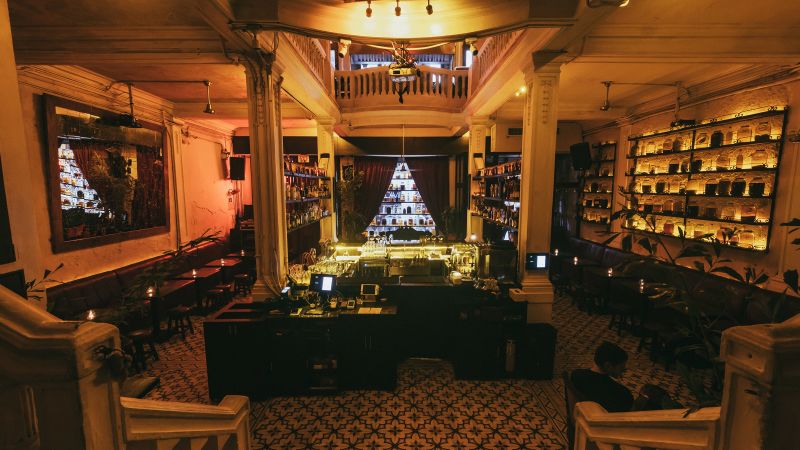/cloudfront-us-east-2.images.arcpublishing.com/reuters/5JO3UX7ZW5ILDD3WMT2GKIIBNI.jpg)
BEIJING (Reuters) – China celebrated the Lunar New Year on Sunday with its people praying for health after three years of stress and financial hardship under the pandemic, with officials reporting nearly 13,000 new deaths from the virus between Jan. 13 and Jan. 13. 19.
Queues stretched for 1 kilometer (half a mile) outside Beijing’s iconic Lama Temple, which was repeatedly closed before COVID-19 restrictions ended in early December, as thousands of people waited their turn to pray for their loved ones.
A Beijing resident said she wished the Year of the Rabbit would bring “health to all”.
“I think this epidemic wave is over,” said the 57-year-old, who only gave her last name, Fang. “I didn’t get the virus, but my husband and everyone in my family did. I still think it’s important to protect ourselves.”
Earlier, officials reported nearly 13,000 hospitalized COVID-related deaths between Jan. 13 and 19, adding to the nearly 60,000 in the previous month or so. Chinese health experts say the wave of infections across the country has already peaked.
The death toll update, from the Chinese Center for Disease Control and Prevention, comes amid doubts about data transparency in Beijing and remains very low by global standards.
Hospitals and funeral homes were overwhelmed after China abandoned the world’s strictest regimes of coronavirus controls and mass testing on December 7 in an abrupt policy shift, which followed historic protests against the restrictions.
The number of deaths reported by Chinese authorities excludes those who died at home, and some doctors said they discourage putting COVID on death certificates.
On January 14, China reported nearly 60,000 hospitalized COVID-related deaths between December 8 and January 12, a massive increase from the more than 5,000 deaths previously reported during the entire pandemic.
[1/6] Worshipers wearing face masks perform their first offerings inside the Wong Tai Sin Temple, a moment before the Lunar New Year, during the coronavirus (COVID-19) pandemic in Hong Kong, China January 21, 2023. REUTERS/Tyrone Siu
Documents showed funeral home spending on items from body bags to cremation ovens soaring in many provinces, one of several indicators of the deadly impact of the coronavirus in China.
Some health experts expect more than 1 million people to die from the disease in China this year, with UK health data firm Airfinity predicting COVID deaths could reach 36,000 per day this week.
As millions of migrant workers return home to celebrate the Lunar New Year, health experts are particularly concerned about people living in China’s vast countryside, where medical facilities are poor compared to those in affluent coastal regions.
It is estimated that some 110 million railway passenger trips were made during January 7-21, the first 15 days of the 40-day travel peak in the Lunar New Year, up 28% year-on-year, People’s Daily, official Communist Party newspaper reported.
A total of 26.23 million trips were made on Lunar New Year’s Eve via railways, highways, ships and planes, half of pre-pandemic levels, but up 50.8% from last year, state-run CCTV reported.
Wu Zunyu, chief epidemiologist at the Chinese Center for Disease Control and Prevention, said Saturday that mass movement of people during the holiday period may spread the epidemic, increasing infections in some areas, but a second wave of COVID is unlikely in the near term. On the social networking platform Weibo.
Wu said the possibility of a major rebound of the coronavirus in China in the next two to three months is remote, as 80% of people have been infected.
After China reopened its borders on January 8, some Chinese people also booked flights abroad. Tourist hotspots in Asia are preparing for a return of Chinese tourists, who spent $255 billion a year globally before the pandemic.
“Because of the epidemic, we haven’t been out of China for three years,” said Kiki Ho, a 28-year-old tourism and business owner, in Krabi on Thailand’s southwest coast. “Now that we can leave and come here for a vacation, I feel so happy and emotional.”
Additional reporting from the Beijing Newsroom; Written by Marius Zaharia Editing by Shri Navaratnam
Our standards: Thomson Reuters Trust Principles.

“Travel specialist. Typical social media scholar. Friend of animals everywhere. Freelance zombie ninja. Twitter buff.”





More Stories
The video shows damage to Netanyahu’s beach house as Hezbollah claims the drone attack
High voter turnout on opening day led to an early delay
Putin is hosting leaders of the Global South at a BRICS summit aimed at counterbalancing Western influence